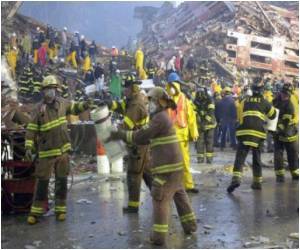
The loss of the ability of the nose to respond to a strong irritant means that the reflexes that protect the lungs from toxic exposures will not be triggered."
Individuals involved in rescue, recovery, demolition and clean-up at the World Trade Center (WTC) were exposed to a complex mixture of smoke, dust, fumes, and gases.
In the study, reported online in the journal Environmental Health Perspectives, Dalton and collaborators studied 102 individuals who worked or volunteered at the WTC site on 9/11 and during the days and weeks afterward to determine whether this exposure affected their ability to detect odors and irritants.
Forty-four percent of the workers reported being in lower Manhattan on 9/11 and 97 percent worked on the site during the week after the buildings' collapse.
Two years after the exposure, the WTC workers had decreased sensitivity to odors and irritants as compared to similar workers with no WTC exposure. Twenty-two percent of the WTC workers had a diminished ability to detect odors and nearly 75 percent had an impaired ability to detect irritants.
Advertisement
Almost none of the individuals tested recognized that their ability to detect odors and irritants was compromised.
Advertisement
"Odors also serve a protective function, such as the ability to identify smoke from a fire, leaking gas, or spoiled food," said Dalton.
Source-ANI
SRM









